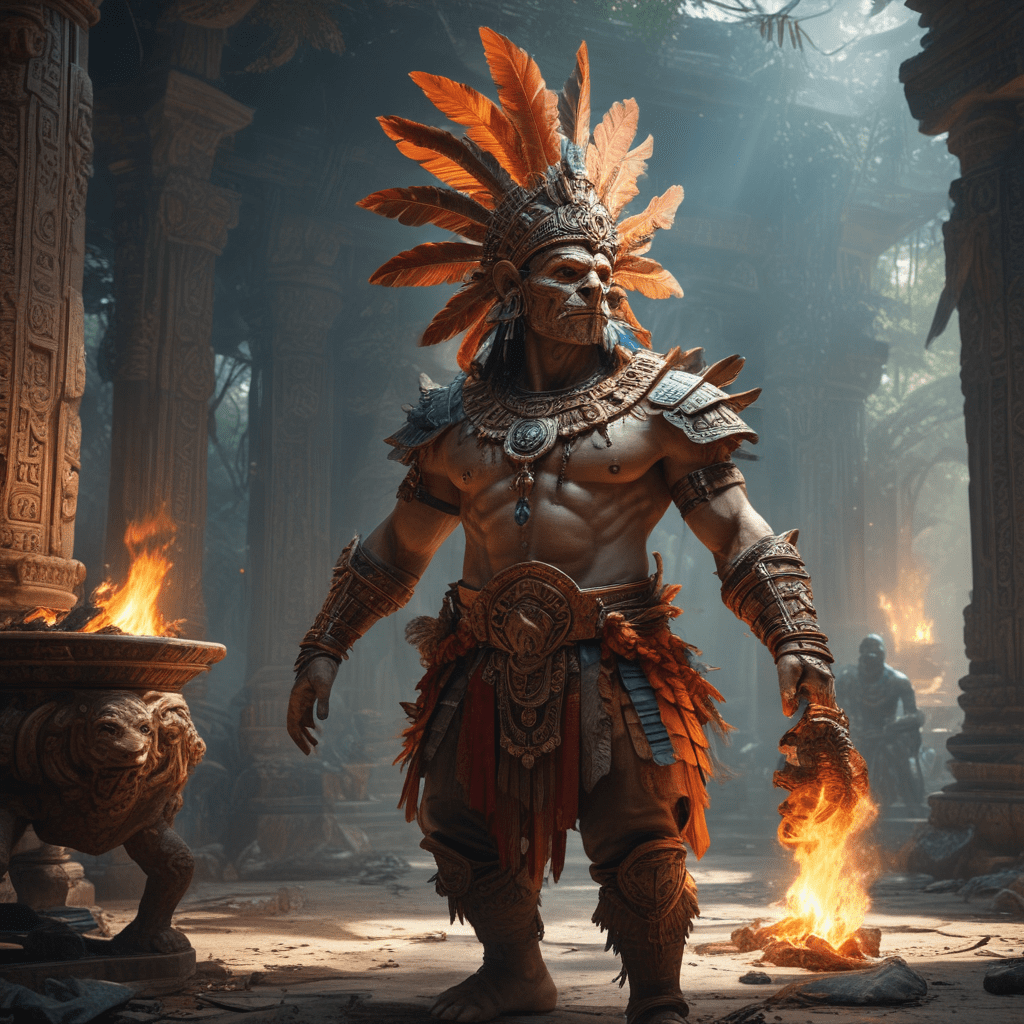The Role of Cultural Heroes in Shaping Our Values
I. Introduction
Cultural heroes are individuals who embody the values, beliefs, and ideals of a society, often serving as role models or symbols of aspiration. They can be found in various forms, such as mythological figures, historical leaders, and contemporary icons. The importance of cultural heroes in society lies in their ability to inspire and motivate individuals, shaping collective values and identity.
This article will explore the historical context of cultural heroes, their characteristics, mechanisms of influence, relevance in contemporary society, their intersection with identity, critiques, cultural variations, and their future in the evolving landscape of heroism.
II. Historical Context of Cultural Heroes
A. Ancient Examples of Cultural Heroes
Throughout history, cultural heroes have emerged in various forms:
- Mythological Figures: Characters like Hercules and Odysseus from Greek mythology illustrate ideals of strength, bravery, and cleverness.
- Historical Leaders: Figures such as Alexander the Great and Joan of Arc represent courage and leadership, leaving a significant impact on their societies.
B. The Evolution of Cultural Heroes Through Different Eras
The concept of cultural heroes has evolved through various historical periods:
- The Renaissance and Enlightenment: This era celebrated humanism and individual achievement, highlighting figures like Leonardo da Vinci and Voltaire.
- Modern Cultural Icons: In contemporary society, heroes often emerge from various fields, including politics, sports, entertainment, and activism.
III. Characteristics of Cultural Heroes
A. Traits Commonly Associated with Cultural Heroes
Cultural heroes often share several key traits:
- Courage and Bravery: They often face adversity and challenges head-on, inspiring others to do the same.
- Moral Integrity and Selflessness: Many cultural heroes are admired for their ethical standards and willingness to put others before themselves.
B. The Impact of These Traits on Societal Values
The traits exhibited by cultural heroes significantly influence societal values, promoting ideals such as:
- Justice and equality
- Compassion and empathy
- Perseverance and resilience
IV. The Mechanisms of Influence
A. How Cultural Heroes Embody and Propagate Societal Values
Cultural heroes serve as embodiments of the values that societies hold dear. Through their actions and stories, they exemplify what it means to be virtuous and noble.
B. The Role of Storytelling and Media in Amplifying Their Influence
Storytelling, whether through literature, film, or social media, plays a crucial role in spreading the narratives of cultural heroes. These stories resonate with audiences, making the heroes relatable and their values accessible.
C. The Psychological Effects of Cultural Heroes on Individuals and Communities
Cultural heroes can invoke a sense of hope and aspiration. They often serve as catalysts for personal and communal change, encouraging individuals to strive for their own goals and contribute positively to society.
V. Cultural Heroes in Contemporary Society
A. Examples of Modern Cultural Heroes
In today’s world, several figures are recognized as cultural heroes:
- Activists: Individuals like Malala Yousafzai and Nelson Mandela have become symbols of resilience and the fight for justice.
- Artists and Entertainers: Icons such as Oprah Winfrey and Beyoncé embody empowerment and creativity, influencing millions across the globe.
B. The Relevance of These Figures in Today’s Cultural Landscape
These modern cultural heroes are vital in addressing contemporary issues such as social justice, equality, and mental health, fostering a culture of awareness and change.
VI. The Intersection of Cultural Heroes and Identity
A. How Cultural Heroes Help Shape Personal and Collective Identity
Cultural heroes often help individuals define their identities, providing models of behavior and values to emulate. They can foster a sense of belonging and purpose within a community.
B. The Role of Cultural Heroes in Marginalized Communities
In marginalized communities, cultural heroes can serve as vital symbols of hope and resilience, inspiring individuals to overcome obstacles and strive for a better future.
C. The Concept of Hero Worship and Its Implications
While cultural heroes can uplift, the phenomenon of hero worship can lead to unrealistic expectations and disillusionment when these figures fail to meet societal ideals.
VII. Critiques and Controversies Surrounding Cultural Heroes
A. The Problem of Flawed Heroes
Many cultural heroes have complex histories:
- Uncovering Hidden Histories: As societies evolve, previously celebrated heroes are often scrutinized for their flaws and problematic actions.
- The Impact of Disillusionment: Discovering the imperfections of revered figures can lead to societal disillusionment and a reevaluation of their legacies.
B. The Phenomenon of Cancel Culture and Its Effects on Hero Narratives
Cancel culture has introduced a new dynamic in how society perceives cultural heroes. The rapid judgment and potential ostracization of figures for past actions can reshape the narrative of heroism significantly.
VIII. Cultural Heroes Across Different Cultures
A. Comparative Analysis of Cultural Heroes in Various Cultures
Cultural heroes vary widely across societies, reflecting unique values and beliefs:
- In Native American cultures, figures like Crazy Horse symbolize resistance and courage.
- In African cultures, figures like Nelson Mandela are celebrated for their roles in fighting oppression and advocating for justice.
B. How Cultural Context Influences the Perception of Heroism
The perception of heroism is deeply influenced by cultural context, leading to different interpretations and values associated with heroes in various societies.
C. The Universal Themes in the Narratives of Cultural Heroes
Despite cultural differences, many narratives of cultural heroes share universal themes, such as the struggle against adversity, the quest for justice, and the pursuit of knowledge.
IX. The Future of Cultural Heroes
A. The Changing Landscape of Heroism in the Digital Age
The digital age has transformed the concept of heroism, with social media allowing for new figures to emerge rapidly, often from grassroots movements.
B. The Potential for New Types of Heroes in Emerging Social Movements
As social movements evolve, new heroes are likely to arise, representing contemporary issues such as climate change, racial justice, and gender equality.
C. Predictions for How Values May Shift
As society progresses, the values embodied by cultural heroes may shift toward inclusivity, diversity, and sustainability, reflecting the changing priorities of the global community.



